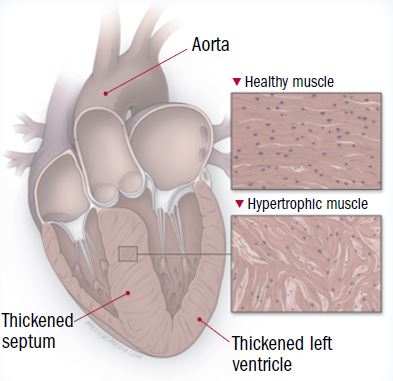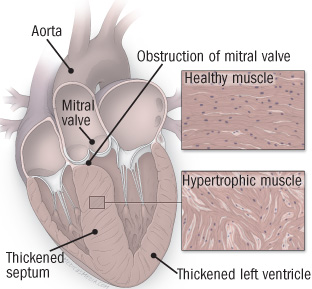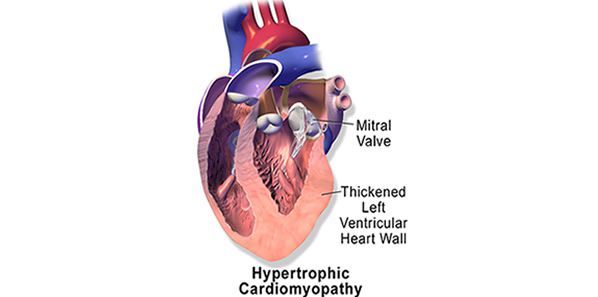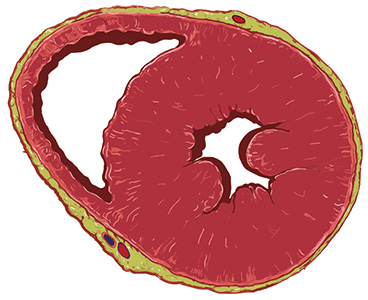Hypertrophic cardiomyopathy is usually caused by abnormal genes gene mutations that cause the heart muscle to grow abnormally thick.
What does thickening of the heart wall mean.
Cardiomyopathy is a progressive disease of the myocardium or heart muscle.
In most people with hypertrophic cardiomyopathy the muscular wall septum between the two bottom chambers of the heart ventricles becomes thicker than normal.
When the heart muscles are abnormally thick it makes it very difficult for the heart to pump blood.
The thickening of the heart muscle does not tend to progress once you stop growing.
It can be caused by multiple factors and conditions including renal failure liver failure heart failure ascites hypoproteinemia and inflammation.
The thickened septum may cause a narrowing that can block or reduce the blood flow.
The septum is the muscular wall that separates the left and right side of the heart.
The main thing to due is make sure your blood pressure and cholesterol are ok as some studies indicated that idiopathic thickening can be associated with an increased risk of stroke.
Thickening of the heart muscles is caused by a condition called hypertrophic cardiomyopathy.
In most cases the heart muscle weakens and is unable to pump blood to the rest of the body as well as it should.
Find in depth information related to thickening of the heart muscle symptoms causes and treatment by going through the following article.
Unfortunately the symptoms gradually become worse for some people as the heart muscle becomes more stiff.
During this surgical procedure the surgeon removes a small amount of the thickened septal wall of the heart to widen the outflow tract the path the blood takes from the left ventricle to the aorta.
Testing will not easily discern a cause.
Problems occur when the septum between the heart s lower chambers or ventricles is thickened.
It affects people of any age notes american heart association.
This means that for many people the symptoms remain stable during adulthood.
Thickening of the heart muscle myocardium occurs most commonly at the septum.




























